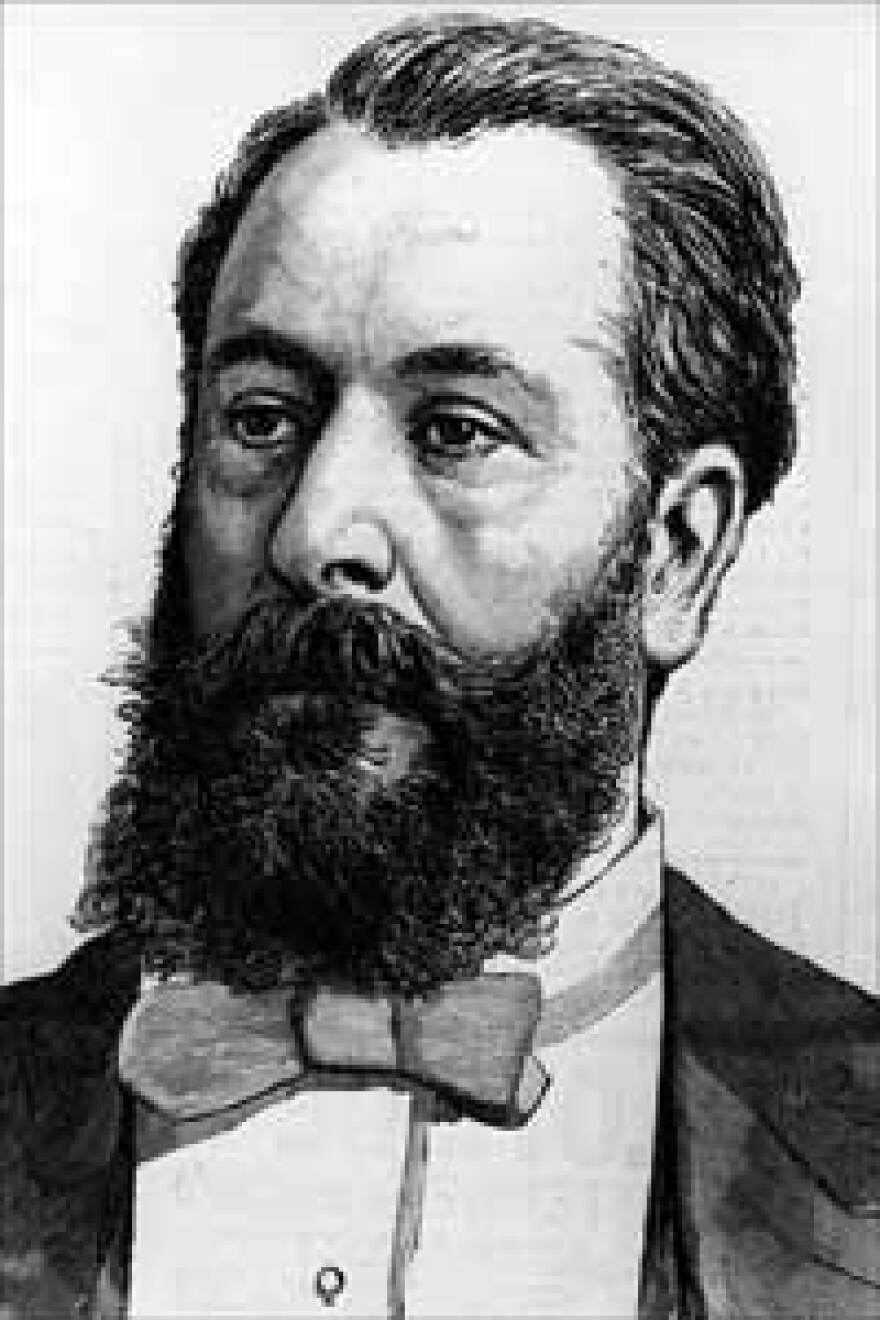
BACKGROUND: The story of the Brahmin girl Lakme was based on a novel by Frenchman Pierre Loti, who had traveled in the Orient and brought back stories filled with exoticism. Librettist Edmond Gondinet suggested the story to composer Leo Delibes. Gondinet wanted to write a libretto specifically for a young American soprano named Marie van Zandt who had starred in another French opera, Ambroise Thomas's Mignon, in 1880. Gondinet gave Delibes a copy of Loti's novel, to read on a train ride, and Delibes loved it. He composed the score in a year's time.
Lakme brings together many popular themes of opera in the 1880s: an exotic location — already in vogue thanks to Bizet's The Pearl Fishers — mysterious religious rituals, the beautiful flora of the Orient, and the general novelty of Western colonials living in a foreign land. Composers Jules Massenet and Giacomo Meyerbeer wrote operas with similar elements, and those dramas were also popular in Paris.
Act One: Lakme is set in British India in the 19th century. Nilakantha, a Brahmin priest, is bent on rebelling against the occupying British, who have forbidden him from practicing his religion. When Nilakantha goes to attend a gathering of the faithful, his daughter Lakme and her servant Millika are left behind. The two go off toward a river to gather flowers and sing the famous "Flower Duet." As they approach the water, Lakme removes her jewelry and leaves it on a bench.
Nearby, British officers Gerald and Frederic are on a picnic with two young English girls and their governess. The girls notice Lakme's jewelry and want sketches of the pieces. Gerald agrees to stay behind to make the drawings.
Lakme and Mallika return, and Gerald hides. Then Mallika goes off, leaving Lakme alone. When Lakme spots Gerald, she's frightened and cries out. But when people come to help, she sends them away. Lakme's heart is doing flip-flops over this young stranger, and he's taken with her as well. But Lakme knows it's dangerous for them to be seen together, and she tells Gerald to forget he ever saw her. When Nilakantha returns, he's furious at finding Gerald with Lakme and says the officer will pay for his affront to Lakme's honor.
Act Two: Nilakantha is in a marketplace, among a crowd of English soldiers and Indians, and he has a plan. He asks Lakme to sing, knowing Gerald will be drawn to her voice. She sings the "Bell Song," an aria famous for its exotic musical colors and spectacular, high coloratura.
The song does attract Gerald, but when Lakme sees him, she stops singing and faints. When Gerald rushes to help her, Nilakantha steps out of the crowd and stabs him. Seeing that Gerald is only slightly injured, Nilakantha flees. Lakme and a servant, Hadji, take Gerald to a safe hiding place.
Act Three: Gerald is recovering in the forest, with Hadji watching over him, when Lakme arrives. They hear singing far in the distance, and Lakme tells Gerald it's a band of lovers going to drink from a sacred spring whose waters confer the gift of eternal love. Lakme wants to get water from the spring herself, and when she leaves, Gerald's friend Frederic turns up. He reminds Gerald that he's been ordered to a new post, far away. Gerald knows he must fulfill his duty and leave Lakme behind.
When Lakme returns from the spring, she senses what's happening. Knowing she's about to lose Gerald, she finds a flower that's known to be poisonous and swallows it. Overwhelmed by her act of devotion, Gerald drinks from the cup of sacred spring water. Doing so is a holy declaration of love — a vow of fidelity that even Nilakantha can't revoke. The poisonous blossom takes effect, and Lakme dies in Gerald's arms as her father looks on.
Copyright 2023 NPR. To see more, visit https://www.npr.org. 9(MDM3NjYwMjA5MDE1MjA1MzQ1NDk1N2ZmZQ004))

